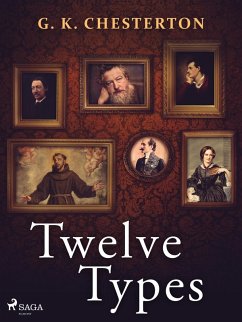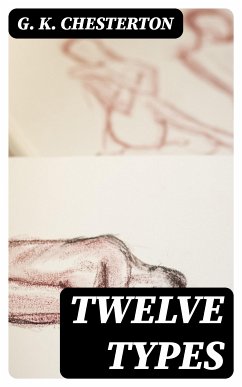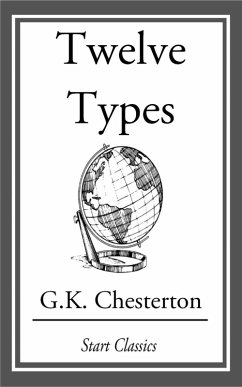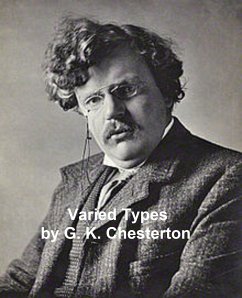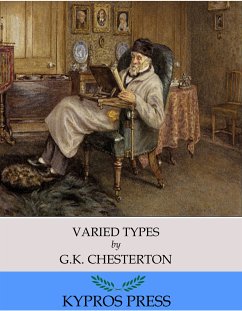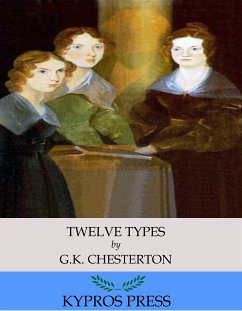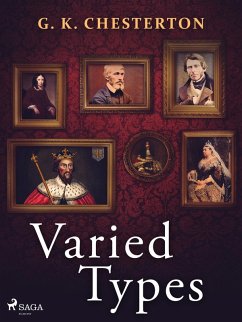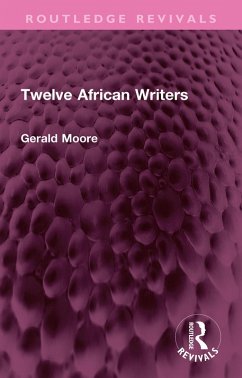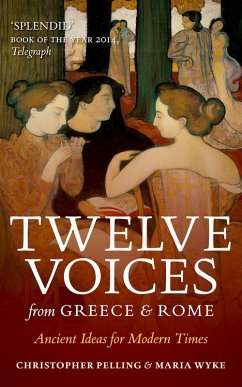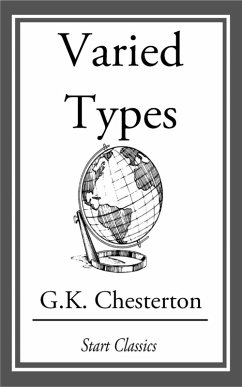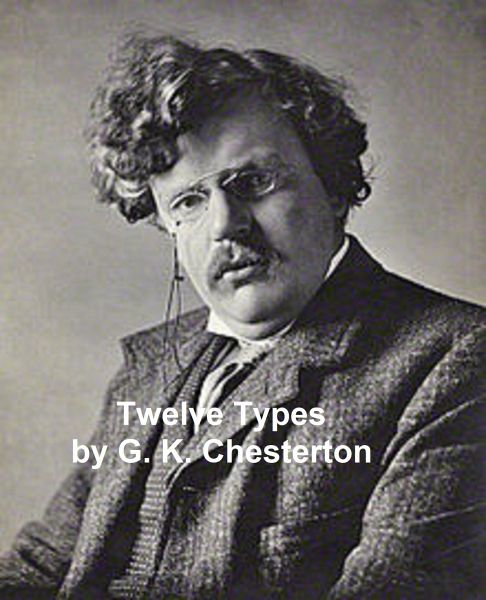
Twelve Types (eBook, ePUB)

PAYBACK Punkte
0 °P sammeln!
Collection of biographical essays, including CHARLOTTE BRONTE, WILLIAM MORRIS AND HIS SCHOOL, THE OPTIMISM OF BYRON, POPE AND THE ART OF SATIRE, FRANCIS, ROSTAND, CHARLES II, STEVENSON, THOMAS CARLYLE, TOLSTOY AND THE CULT OF SIMPLICITY, SAVONAROLA, and THE POSITION OF SIR WALTER SCOTT. According to Wikipedia: "Gilbert Keith Chesterton (29 May 1874 - 14 June 1936) was an influential English writer of the early 20th century. His prolific and diverse output included journalism, philosophy, poetry, biography, Christian apologetics, fantasy and detective fiction. Chesterton has been called the "pr...
Collection of biographical essays, including CHARLOTTE BRONTE, WILLIAM MORRIS AND HIS SCHOOL, THE OPTIMISM OF BYRON, POPE AND THE ART OF SATIRE, FRANCIS, ROSTAND, CHARLES II, STEVENSON, THOMAS CARLYLE, TOLSTOY AND THE CULT OF SIMPLICITY, SAVONAROLA, and THE POSITION OF SIR WALTER SCOTT. According to Wikipedia: "Gilbert Keith Chesterton (29 May 1874 - 14 June 1936) was an influential English writer of the early 20th century. His prolific and diverse output included journalism, philosophy, poetry, biography, Christian apologetics, fantasy and detective fiction. Chesterton has been called the "prince of paradox." Time magazine, in a review of a biography of Chesterton, observed of his writing style: "Whenever possible Chesterton made his points with popular sayings, proverbs, allegories-first carefully turning them inside out."
Dieser Download kann aus rechtlichen Gründen nur mit Rechnungsadresse in A, B, BG, CY, CZ, D, DK, EW, E, FIN, F, GR, H, IRL, I, LT, L, LR, M, NL, PL, P, R, S, SLO, SK ausgeliefert werden.




